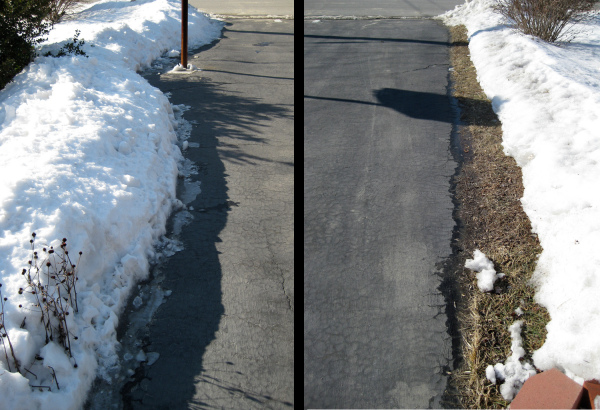Dr. Seymour Papert is one of my favorite educational thinkers. It's like he's in my head taking barely formulated thoughts and ideas and turns them into detailed, well articulated arguments that I might have never been able to get to on my own.
If you're not subscribed to Gary Stager's "Daily Papert," you should be. Little bits of Dr. Papert's work everyday, delivered directly to my Reeder. The May 25, 2011 edition contains this gem:
The third big idea is hard fun. We learn best and we work best if we enjoy what we are doing. But fun and enjoying doesn’t mean “easy.” The best fun is hard fun. Our sports heroes work very hard at getting better at their sports. The most successful carpenter enjoys doing carpentry. The successful businessman enjoys working hard at making deals.

In high school I'd spend hours in the back yard trying to perfect my curving corner kicks1, not because it was easy, but because it was something I enjoyed. More recently I've found myself drawn to other learning experiences that I undertake2 because I find them interesting- but often they take a lot of effort because when I start I don't know anything about them.
The traditional school curriculum more often than not misses this hard fun. Not because there's something inherent about what we learn in school that prevents it from being hard fun, but because designing hard fun learning experiences requires a bit more flexibility, a lot more student control, and a heckuva lot less "feeding" students the one right way.
I recently ran The Marshmallow Challenge with all my classes. For 18 minutes almost every student- and especially those students who will try to sleep through every class all day- were dedicated to building the tallest structure they could using spaghetti, string, tape, and a marshmallow. Half of the groups had a structure that was unable to hold a marshmallow off the ground- and most of these groups immediately wanted to spend the rest of class redesigning their structure and making it better. It was hard, but it was fun.
I've been greatly enjoying the work many educators have been doing recently towards providing students with hard fun in their classes. Notably:
- Shawn Cornally's Inquiry Style™
- He continually throws interesting situations at students and lets them take over. I love it. Take these investigations into oscillations, for instance. Killer.
- Teachers, like one Frank Noschese, providing raw footage of Angry Birds(for example).
- If you're not sure how students might use this data, Rhett Allain does a great job of showing just how far one can analyze Angry Birds, among other things.
- Dan Meyer's new meme: #anyqs
- I've been focusing on turning content into a narrative story whenever possible this year. Dan Meyer has been taking this to the next level in math, noting that, "good storytelling is a first cousin to good math instruction." I'd argue this is true for most any subject. Here's an excellent little series on sharpening pencils.
While I worry about the increasingly standardized nature of instruction in this country, I'm happy there are so many educators out there taking instruction to the next level and sharing with the rest of us.
Perhaps the best hard fun is designing hard fun for others. 🙂
_________
- FYI: This was pre-"Bend it like Beckham" [↩]
- i.e. brewing beer, landscaping, fixing broken appliances myself. [↩]








